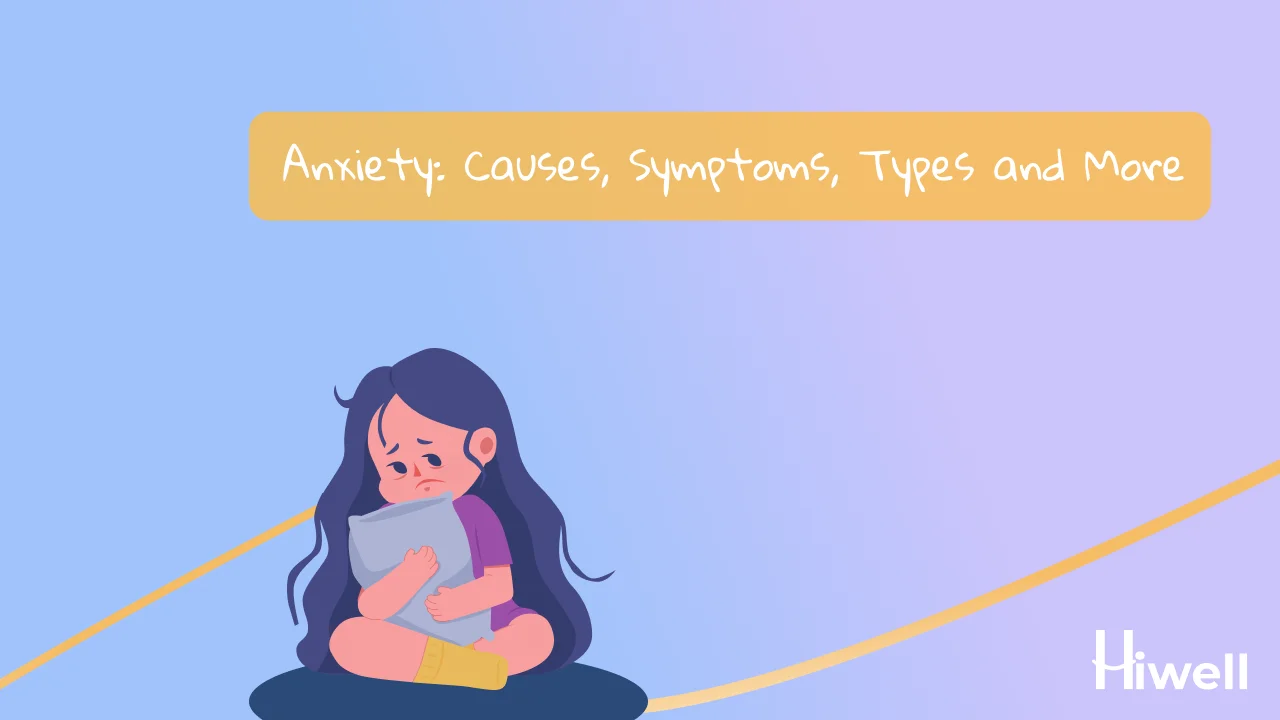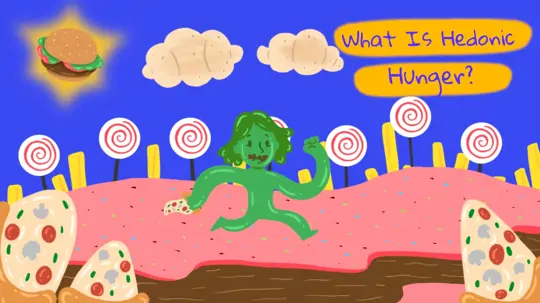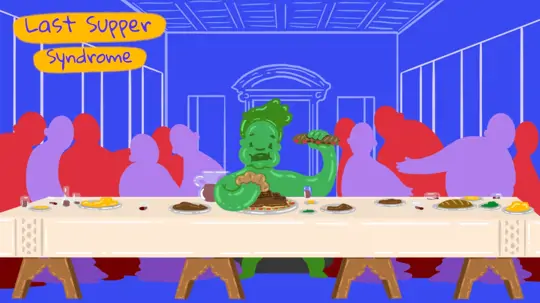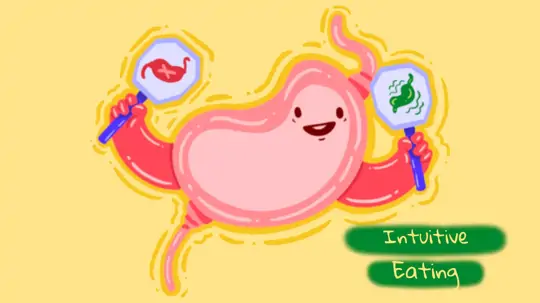
Start feeling better today!
Connect with your therapist today and take control of your life like our 850.000 happy clients.
Get StartedWhat is Anxiety?
Anxiety is a natural and healthy response that occurs when the body encounters stressful and dangerous situations. It allows us to be alert to possible threats and to cope with the challenges we face in daily life. According to the definition of the American Psychological Association, anxiety is an emotion characterized by feeling nervous, having worrying thoughts, and showing physical symptoms such as elevated blood pressure. Situations such as going to a job interview, taking an exam, moving to a new place, speaking in public can cause anxiety for everyone.
What is Anxiety Disorder?
Sometimes, the anxiety may become more intense and prolonged than the anxiety-provoking situation may have caused. Physical symptoms such as high blood pressure or stomach pain may develop. Such symptoms may indicate that you have an anxiety disorder rather than anxiety. When anxiety becomes a disorder, it begins to complicate daily life.
Who Develops Anxiety Disorders?
Anxiety disorders are one of the most common mental health disorders and can occur in people of all ages. The lifetime incidence in Turkey is known to be 5–6%. Generalized anxiety disorder starts in childhood or young adulthood, and the level of anxiety usually increases with age. It is more likely to be seen in people who have had extremely stressful experiences in their lives.
What Causes Anxiety?
Brain structure, genetic factors, upbringing, and environmental effects play a role in the emergence of anxiety disorders.
Risk factors that may increase the likelihood of developing an anxiety disorder include
- Susceptibility to addiction
- Childhood trauma
- Living a stressful life
- Fear of abandonment
- Having insecure attachment styles
What are the Types of Anxiety Disorder?
There are many disorders that involve anxiety. These disorders are
Pervasive Anxiety Disorder: This disorder is characterized by feeling extremely anxious and tense very often. It is felt even when there is no problem that can cause constant anxiety.
Panic Disorder: Unwanted and recurring intense fears and accompanying physical symptoms are seen.
Obsessive Compulsive Disorder: Unwanted thoughts (obsessions) that occur frequently outside of the person's control and repetitive behaviors (compulsions) such as washing hands, cleaning, counting to keep these thoughts under control lead to anxiety disorder.
Specific Phobias: A phobia is an intense and uncontrollable fear of a specific situation, event, or object.
Social Anxiety Disorder (Social Phobia): It is a disorder involving intense anxiety that occurs with the fear of being judged in daily social situations such as talking to people or eating with others. For more on social phobia, you can read our blog post. .
Post Traumatic Stress Disorder: It is a disorder that occurs after a physically harmful or threatening event.
What are the Common Symptoms of Anxiety Disorders?

Symptoms of Anxiety Disorder vary from person to person. Butterflies in your stomach or intense muscle pain can also be the way you experience anxiety disorder. People may feel anxious and fearful in general, or they may only be persistently worried about a specific place or situation. Anxiety sufferers often feel out of control in both their body and mind. They may have nightmares and panic attacks. Some of the common anxiety disorder symptoms include:
- Feeling nervous
- Feeling restless
- Difficulty falling asleep
- Focus problems
- Obsessed thoughts
- The desire to escape the anxiety-provoking situation
Anxiety Disorder is a condition that also has physical symptoms. In most people, intense and persistent anxiety also causes physical symptoms that are hard to control.
The physical symptoms of Anxiety Disorder are
- Increased heart rate
- Muscle pain
- Excessive sweating
- Stomach related problems
- Fast breathing
- Trembling
- Getting tired easily
While anxiety has an effect on many cognitive processes, it is also associated with many psychological problems such as depression and stress.
Anxiety and Depression
Although anxiety and depression are different from each other, they have similar characteristics, and it is common for different mental health disorders to coexist. Similar methods are needed to cope with the symptoms of both conditions: lifestyle changes, psychotherapy, and drug therapy. Anxiety may be one of the symptoms of major depression, or the worsening of depression symptoms may trigger an anxiety disorder.
Anxiety and Stress
Stress and anxiety are very similar. Stress is caused by an event or situation that leads to anxiety. Anxiety is also a state of fear and tension. Anxiety and stress cause similar mental and physical symptoms. Anxiety disorders can occur due to stress or they can occur for no reason. In fact, a little anxiety and stress help us stay alert to the challenges we face. However, if anxiety and stress becomes permanent, getting support from a mental health specialist is important to improve the quality of life.
Anxiety and Cognitive Processes
Cognitive control is the ability to direct one's cognitive processes towards a specific goal and to successfully monitor goal-directed behaviors. Many scientific studies have found that cognitive control and anxiety are closely related. High anxiety is associated with distorted cognitive control and processes.
The six main categories of cognitive processes affected by anxiety are:
- Memory and learning
- Complex attention
- Language and language processing
- Executive functions
- Social cognition
- Perceptual and motor functions
Hormones triggered by high levels of anxiety tend to perceive stimuli in the environment as threatening. This advanced threat processing mechanism disrupts various cognitive processes, from observing the environment to responding to it. Anxiety has also been shown to have effects on short- and long-term memory. Anxiety reduces the performance of working memory and increases the possibility of negative information entering working memory. As a result of a study conducted with adults living in the USA and without a diagnosis of depression, it was revealed that there is a negative relationship between anxiety and the performance of working memory. It has been shown that there may be a decrease in the cognitive control resources required for behavior change due to anxiety.
Anxiety Diagnosis and Therapy Process
It is necessary to seek support when feeling anxious all the time begins to negatively affect daily life and human relations. Often, people with anxiety disorders are aware that their anxiety is excessive and uncontrollable. However, in some cases, these people only focus on physical symptoms such as muscle pain and increased heart rate. For the therapy process, it is necessary to consult a competent mental health professional with expertise in working with anxiety problems. In the treatment of anxiety disorders, only psychotherapy or drug therapy together with psychotherapy can be used. You and the professional should decide together which will be the most suitable for you.
Anxiety disorders are treatable. Successful results are achieved through psychotherapy, drug therapy, or a combination of the two. The appropriate treatment should be determined by a professional. However, it is necessary to start by being aware of whether the anxiety will go away on its own. Cognitive Behavioral Therapy, Schema Therapy, or Psychodynamic Therapy are evidence-based therapy methods used to overcome anxiety disorders. The changes you will make in your lifestyle will enable you to cope with the symptoms of anxiety disorder, eliminate the negative effects of these symptoms on your life, and live a more peaceful life.
Sources
- Grant, D. M., & White, E. J. (2016). Influence of Anxiety on Cognitive Control Processes. Oxford Research Encyclopedia of Psychology, February, 1–26. https://doi.org/10.1093/acrefore/9780190236557.013.74
- Lukasik, K. M., Waris, O., Soveri, A., Lehtonen, M., & Laine, M. (2019). The relationship of anxiety and stress with working memory performance in a large non-depressed sample. Frontiers in Psychology, 10(JAN), 1–9. https://doi.org/10.3389/fpsyg.2019.00004
- Urban, S., & Raś, P. (1998). Treatment of anxiety disorders. Wiadomości Lekarskie (Warsaw, Poland: 1960), 51(1–2), 82–89. https://doi.org/10.4135/9781452229546.n28
- Bandelow, B., Michaelis, S., & Wedekind, D. (2017). Treatment of anxiety disorders. www.dialogues-cns.org





